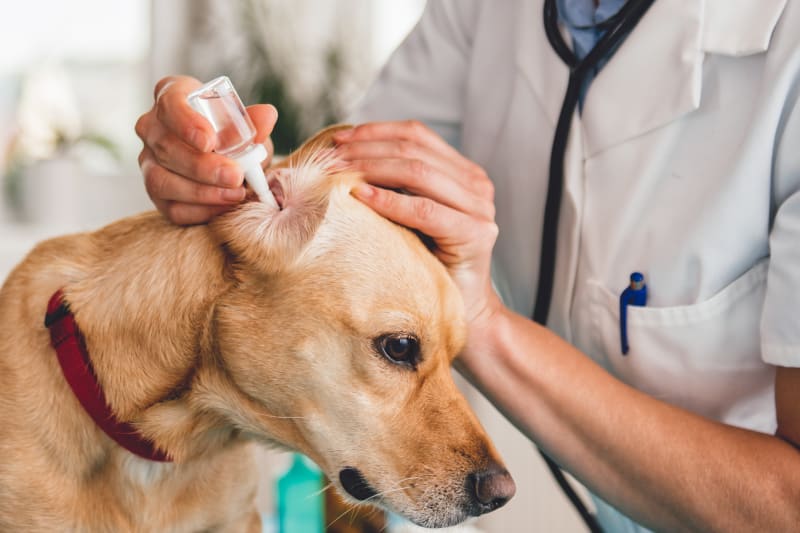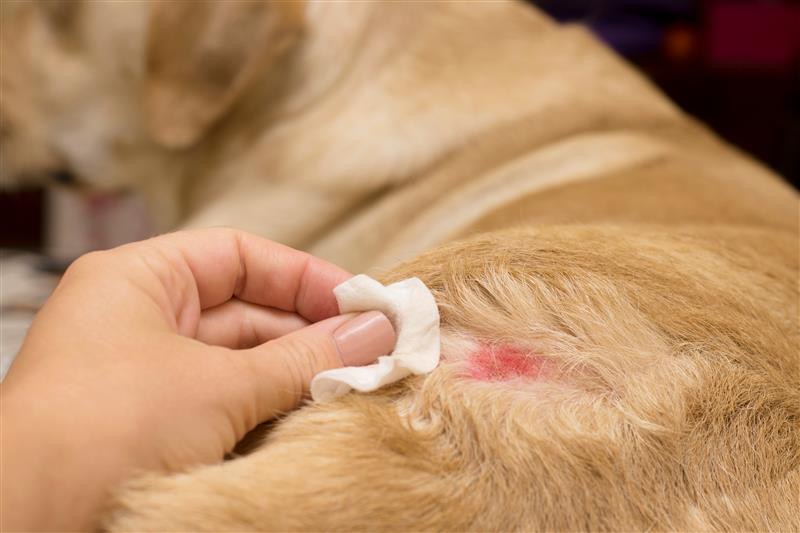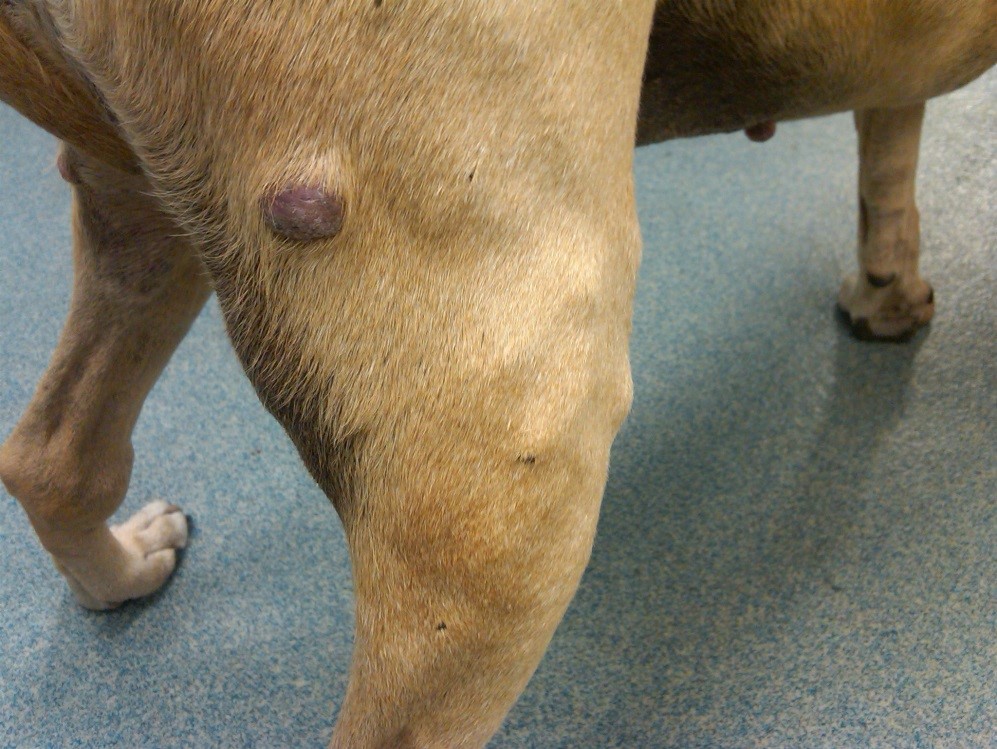






Labrador Retrievers are one of the most beloved dog breeds due to their friendly nature, intelligence, and loyalty. However, like all breeds, they are prone to certain genetic and lifestyle-related health issues. Understanding these common Labrador Retriever health issues and taking preventive measures can ensure your Lab leads a long, healthy, and active life.
This guide covers the most frequent health problems Labradors face, along with practical prevention tips to keep your furry companion in top shape.
:quality(75))
Hip and elbow dysplasia are genetic joint disorders where the hip or elbow joints do not develop properly, leading to pain, stiffness, and arthritis over time. Large breeds like Labradors are particularly prone to this condition.
✔ Difficulty standing up or climbing stairs
✔ Limping or favoring one leg
✔ Reduced activity and reluctance to run or jump
✔ Pain when touched around the joints
✔ Choose a reputable breeder that screens for hip and elbow dysplasia.
✔ Maintain a healthy weight to reduce stress on joints.
✔ Provide joint supplements like glucosamine and chondroitin.
✔ Avoid excessive high-impact activities in puppies while their joints are developing.
✔ Regular vet checkups can catch early signs before they worsen.
Labradors are highly food-motivated, making them prone to weight gain and obesity if not properly managed. Excess weight leads to joint problems, diabetes, and heart disease.
✔ Difficulty moving or breathing after minimal activity
✔ Noticeable weight gain and belly fat
✔ Low energy levels and reluctance to exercise
✔ Measure food portions and avoid overfeeding.
✔ Use slow feeder bowls to prevent fast eating.
✔ Provide daily exercise (at least 1-2 hours of activity).
✔ Limit treats and table scraps—opt for healthy snacks like carrots or blueberries.
✔ Regular weigh-ins help track weight changes.

Labradors have floppy ears, making them prone to ear infections due to trapped moisture, wax buildup, and bacteria growth.
✔ Red, swollen, or smelly ears
✔ Frequent head shaking or scratching
✔ Brown or yellow discharge
✔ Sensitivity when touching the ears
✔ Clean ears weekly with a vet-approved ear cleaner.
✔ Dry ears thoroughly after swimming or bathing.
✔ Monitor for wax buildup and check for redness or odor.
✔ Avoid inserting cotton swabs inside the ear canal.
Labradors are prone to Progressive Retinal Atrophy (PRA), a degenerative eye disease that can lead to blindness. They may also develop cataracts and retinal dysplasia.
✔ Difficulty seeing in low light
✔ Bumping into furniture or walls
✔ Cloudiness in the eyes (cataracts)
✔ Gradual vision loss
✔ Choose a breeder that tests for PRA before breeding.
✔ Regular eye checkups with a vet can detect early signs.
✔ Provide an antioxidant-rich diet to support eye health.
✔ Avoid exposing eyes to excessive UV light.
Bloat, or Gastric Dilatation-Volvulus (GDV), is a life-threatening condition where the stomach fills with gas and twists, cutting off blood flow. Large, deep-chested dogs like Labradors are at higher risk.
✔ Swollen or hard belly
✔ Excessive drooling or unproductive vomiting
✔ Restlessness and pacing
✔ Collapse or signs of distress
✔ Feed smaller, more frequent meals instead of one large meal.
✔ Avoid exercise immediately before or after eating.
✔ Use slow-feeder bowls to prevent rapid eating.
✔ Provide elevated food and water bowls if needed.
✔ Watch for symptoms and seek emergency vet care immediately if bloat is suspected.

Labradors can suffer from food allergies, environmental allergies, and skin infections that cause itching, rashes, and hair loss.
✔ Excessive scratching, licking, or biting
✔ Red, irritated skin or ear infections
✔ Hair loss or flaky skin
✔ Frequent paw chewing
✔ Identify food allergies by switching to a hypoallergenic diet if needed.
✔ Use vet-approved shampoos for sensitive skin.
✔ Regular flea and tick prevention reduces irritation.
✔ Keep bedding and living areas clean to minimize allergens.
Labradors are at risk for heart disease, particularly dilated cardiomyopathy (DCM), which affects heart function.
✔ Fatigue and reluctance to exercise
✔ Coughing, especially at night
✔ Rapid breathing or difficulty breathing
✔ Fainting or collapse
✔ Feed a balanced, heart-healthy diet with omega-3s.
✔ Schedule regular heart checkups with your vet.
✔ Maintain a healthy weight to reduce heart strain.
✔ Avoid grain-free diets linked to DCM unless advised by a vet.

As Labradors age, they are prone to arthritis and joint pain, which can affect mobility and comfort.
✔ Stiffness or limping after resting
✔ Difficulty climbing stairs or jumping
✔ Decreased activity levels
✔ Swollen joints
✔ Provide joint supplements with glucosamine and chondroitin.
✔ Maintain a healthy weight to prevent extra joint stress.
✔ Regular low-impact exercise like swimming can help.
✔ Use orthopedic dog beds for extra comfort.
Hypothyroidism occurs when the thyroid gland doesn’t produce enough hormones, leading to weight gain, sluggishness, and skin issues.
✔ Sudden weight gain without increased food intake
✔ Lethargy and low energy
✔ Dry, flaky skin or hair loss
✔ Intolerance to cold
✔ Regular vet checkups can detect early signs.
✔ Provide a balanced diet rich in essential nutrients.
✔ Daily exercise helps regulate metabolism.
✔ Thyroid medication may be required if diagnosed.

Labradors are susceptible to certain cancers, including mast cell tumors, lymphoma, and bone cancer.
✔ Unexplained lumps or bumps
✔ Sudden weight loss or loss of appetite
✔ Lethargy and weakness
✔ Persistent wounds that don’t heal
✔ Regular vet exams help detect lumps early.
✔ Feed an antioxidant-rich diet to support immune health.
✔ Limit exposure to environmental toxins.
✔ Spaying/neutering can reduce the risk of certain cancers.
Read Also : Top 10 Labrador Retriever Training Tips Every Owner Should Know
Essential Labrador Retriever Grooming Tips for a Shiny, Healthy Coat
While Labradors are generally healthy and resilient, they are prone to certain genetic and lifestyle-related health conditions. Regular vet checkups, a balanced diet, and an active lifestyle play a crucial role in preventing health problems and ensuring longevity.
✔ Monitor joint health to prevent dysplasia and arthritis.
✔ Control weight with proper diet and exercise.
✔ Check ears regularly to prevent infections.
✔ Watch for early signs of bloat, allergies, or thyroid issues.
✔ Routine vet visits can catch problems before they become severe.
By being proactive with preventive care, your Labrador can enjoy a long, happy, and healthy life!
Hip dysplasia and obesity are the most common health concerns.
Feed measured portions, limit treats, and ensure daily exercise.
Yes, glucosamine supports joint health, especially for aging Labs.
At least once a year, but twice a year for senior Labs.




